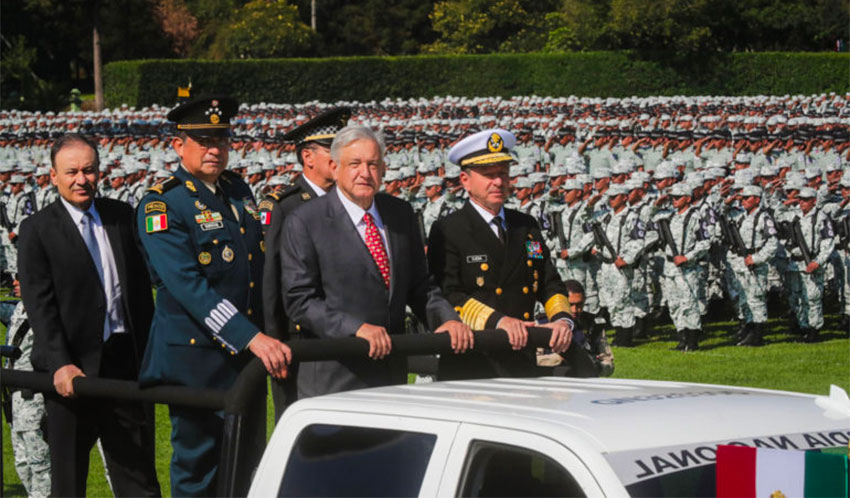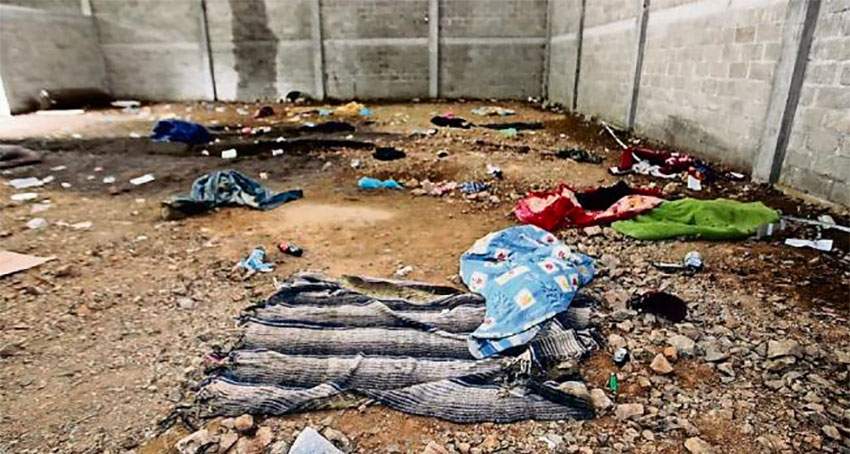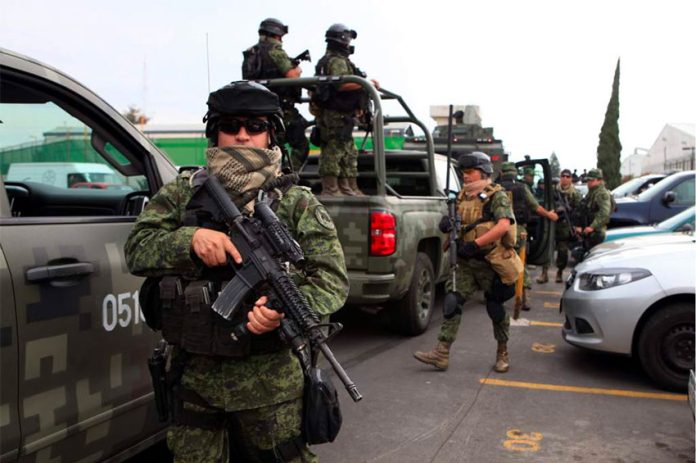President López Obrador came to power a year and a half ago promising a gradual withdrawal of the military from the nation’s streets.
But on Monday he published a decree ordering the armed forces to continue carrying out public security tasks for another four years, an about-face that appears to acknowledge that the National Guard has failed in its mission to reduce violence.
The decree states that the military will patrol the streets and carry out public security operations in conjunction with police forces and the National Guard until March 2024. López Obrador’s six-year term will end six months later.
The decree perpetuates the militarization model — widely criticized as a failure — first implemented by former president Felipe Calderón shortly after he took office in late 2006. Homicides surged after the so-called war on drugs commenced and high levels of violence continue to plague the country, with murders reaching their highest level ever in 2019.
López Obrador has frequently blamed the violence on the failed security strategies of Calderón and his immediate predecessor, Enrique Peña Nieto, who also made extensive use of the military to fight crime.

The president instead pledged to reduce violence with a “hugs, not bullets” strategy, pouring money into social programs he said would address the root causes of crime such as poverty and lack of opportunity. López Obrador also created a new security force, the National Guard, which he said would contribute to reducing violence.
It was supposed to be the centerpiece of his administration’s security strategy.
But almost a year after the Guard was formally inaugurated, the presidential decree appears to be a concession that the new security force and the government’s social programs have not been as effective in reducing violence as López Obrador hoped, and that the military is indeed needed to tackle Mexico’s notoriously dangerous criminal organizations.
March was the most violent month since López Obrador took office in December 2018 and preliminary figures show that homicides declined less than 4% in April despite the coronavirus pandemic.
National Autonomous University (UNAM) academic and security consultant Carlos Mendoza said the publication of the decree amounts to an admission that the National Guard is incapable of stopping violence and that the support of the army is still needed to curb crime.
Javier Oliva, a UNAM politics professor, said it also acknowledges the weakness of municipal and state police forces. He said that López Obrador’s decision to keep the military on the streets for at least the next four years was in “harmony with the gravity” of Mexico’s security situation.

Damián Zepeda, a federal senator with the National Action Party, said the decree recognizes that insecurity in Mexico is “out of control.”
“It’s clear that the government is not able [to control violence] and is handing over [responsibility for] public security to the armed forces,” he said.
The move triggered renewed criticism from human rights groups, which have long argued against using the military to combat crime.
“In effect, the army and navy are going to be handling police duties until 2024,” said Santiago Aguirre, director of the Miguel Agustín Pro Juárez Human Rights Center.
Both branches of the military “have a long history of not being accountable, especially in cases of serious human rights violations,” he said.
Seguridad Sin Guerra (Security Without War), a group made up of academics, human rights defenders, activists, journalists and others, expressed concern that the decree doesn’t establish accountability mechanisms that will keep the military in check as it carries out public security tasks.
The decree “authorizes the armed forces to make arrests, execute arrest warrants, seize goods, protect and process crime scenes and do public security work at the borders, in customs, on federal highways and in airports … without external controls and without accountability mechanisms,” the group said in a statement.
Seguridad Sin Guerra criticized the decree for not stipulating that the armed forces will be under the authority of a civilian government agency.
The decree “normalizes the practice established since the government of Felipe Calderón: the militarization of public security without any control,” the group said, charging that it violates the constitution and a Supreme Court order that “ruled unequivocally” that the armed forces must be under civilian command when carrying out permanent security tasks.
While the constitutional reform that created the National Guard established that the use of the armed forces to combat crime could be ramped up, “it doesn’t establish with precision the extraordinary situation that justifies the intervention,” said security analyst Alejandro Hope.
He also said that López Obrador’s decree violates the constitutional reform that created the National Guard.
“The reform says that [the use of the armed forces] must be controlled and supervised [by civilian authorities] but the decree establishes that” the armed forces will oversee their own operations in the carrying out of public security tasks, Hope told the newspaper El Universal.
“The reform establishes that [the military] must be subject to civilian command and supervision but the decree doesn’t,” he said.
Hope also questioned why the decree was published amid the coronavirus pandemic.
“Why is it at this time, when we’re right in the middle of a pandemic, that the government decides to pull the trigger on this reform?” he asked.
César Gutiérrez Priego, a lawyer who specializes in military matters, acknowledged that the National Guard has had corruption and discipline problems but predicted that the armed forces will have its own problems now that its role in enforcing public security will be bolstered.
He said the National Guard has greater numbers of personnel than the armed forces and therefore questioned how the latter will be able to complete all the tasks López Obrador is asking of them.
“How are the army, the air force and the navy going to carry out all the roles the president is entrusting them with if they don’t have enough personnel?” Gutiérrez said.
The lawyer also predicted that having so many different security forces engaged in public security tasks will create command problems.
“… one of the great problems of the armed forces is that authority is not shared … so we’re going to see various situations [in that respect].”
Source: El Universal (sp), Reforma (sp)
